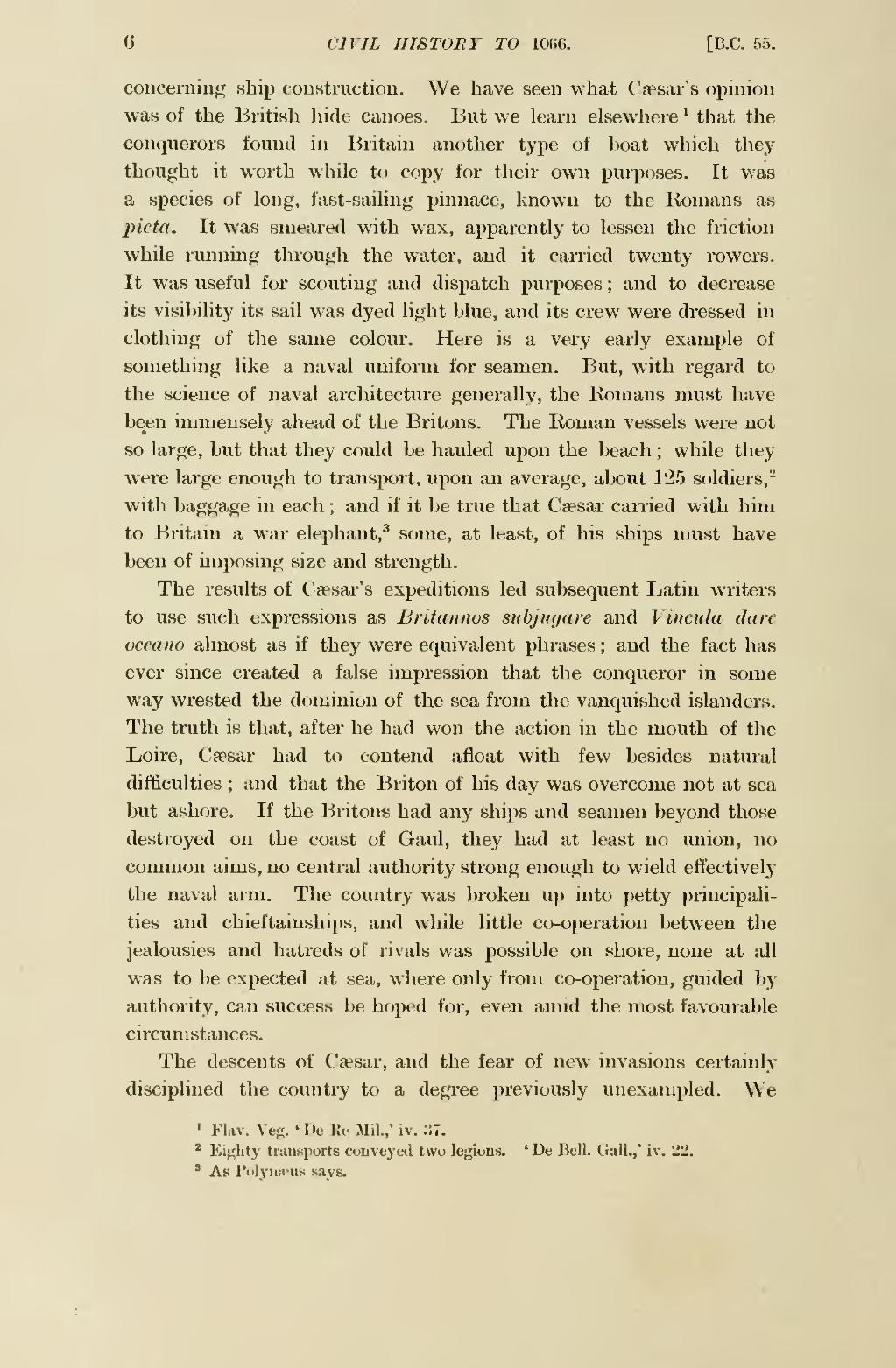concerning ship construction. We have seen what Cæsar's opinion was of the British hide canoes. But we learn elsewhere[1] that the conquerors found in Britain another type of boat which they thought it worth while to copy for their own purposes. It was a species of long, fast-sailing pinnace, known to the Romans as picta. It was smeared with wax, apparently to lessen the friction while running through the water, and it carried twenty rowers. It was useful for scouting and dispatch purposes; and to decrease its visibility its sail was dyed light blue, and its crew were dressed in clothing of the same colour. Here is a very early example of something like a naval uniform for seamen. But, with regard to the science of naval architecture generally, the Romans must have been immensely ahead of the Britons. The Roman vessels were not so large, but that they could be hauled upon the beach; while they were large enough to transport, upon an average, about 125 soldiers,[2] with baggage in each; and if it be true that Cæsar carried with him to Britain a war elephant,[3] some, at least, of his ships must have been of imposing size and strength.
The results of Cæsar's expeditions led subsequent Latin writers to use such expressions as Britannos subjugare and Vincula dare oceano almost as if they were equivalent phrases; and the fact has ever since created a false impression that the conqueror in some way wrested the dominion of the sea from the vanquished islanders. The truth is that, after he had won the action in the mouth of the Loire, Cæsar had to contend afloat with few besides natural difficulties; and that the Briton of his day was overcome not at sea but ashore. If the Britons had any ships and seamen beyond those destroyed on the coast of Gaul, they had at least no union, no common aims, no central authority strong enough to wield effectively the naval arm. The country was broken up into petty principalities and chieftainships, and while little co-operation between the jealousies and hatreds of rivals was possible on shore, none at all was to be expected at sea, where only from co-operation, guided by authority, can success be hoped for, even amid the most favourable circumstances.
The descents of Cæsar, and the fear of new invasions certainly disciplined the country to a degree previously unexampled. We

